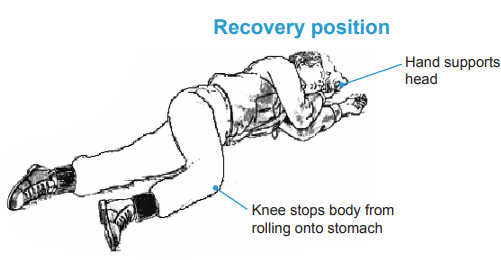Alcohol
There's no completely safe level of drinking. Alcohol has serious effects on your health and development.
It’s important to understand that alcohol has serious effects on your health and development.
People who start drinking regularly at a young age are more likely to have problems with alcohol as an adult.
If you’re under 18, it’s against the law:
- for someone to sell you alcohol
- to buy or try to buy alcohol
- for an adult to buy or try to buy alcohol for you
- to drink alcohol in licensed premises (such as a pub or restaurant)
If you’re 16 or 17 and with an adult, you can drink (but not buy) beer, wine or cider with a meal.
What are the risks?
Drinking a lot of alcohol will make you drunk. When drunk you may act differently, have slurred speech, lack coordination and even get blurred vision.
Alcohol can lead to health problems:
- Alcohol poisoning. Drinking a lot of alcohol in a short space of time can cause alcohol poisoning. This affects your ability to speak and move. It can cause low blood sugar, fits, accidental injuries or ending up in vulnerable or dangerous situations.
- Mood. Alcohol can reduce feelings of anxiety and may make you feel more sociable. It exaggerates whatever mood you're in so if you were in a bad mood it can make you angry or violent. Alcohol raises testosterone levels causing aggression.
- Accidents and injuries. Alcohol affects your ability to control your body movements, balance and coordination. If you have a lot to drink, you’re more likely to hurt yourself.
- Risk taking. It can lead to you take risks you wouldn’t normally take, like having unprotected sex, getting into fights or getting into trouble with the police.
- Diseases. Longterm effects include damage to the brain, body and its organs. Drinking alcohol regularly increases the risk of liver disease, cancer, heart disease and diabetes.
How much is too much?
Everyone responds to alcohol differently. Your height, weight and sex can all affect how alcohol affects you. Even what you've had to eat that day or how much sleep you've had can make a difference.
There's no completely safe level of drinking. Ideally young people should not drink any alcohol. It is recommended that adults drink no more than 14 units of alcohol a week, spread across 3 days or more.
Tips for peer pressure
- Say 'No'. If you don't want to drink, then don't. You are in control of your body and can choose what you do or don't do.
- Give them a reason. You could say that you don’t feel very well, you’ve got to be up early in the morning or use your parents as an excuse
- Use a decoy. Have a soft drink in your hand already so your friends assume you already have a drink.
Keep yourself safe
- Don’t leave your drink unattended or accept drinks from strangers in case someone adds something to it that you don’t know about (spikes your drink)
- Look after yourself and your friends
- Be aware of your surroundings
- If a person is drunk then remember that they are not legally able to give consent to sexual activity
- Don't drink and drive. Don't get in a car with someone who has been drinking.
Alcohol Poisoning
Signs and Symptoms:
- Confusion
- Severely slurred speech
- Coordination loss
- Vomiting
- Slow or irregular breathing
- Pale or blue tinged skin
- Being unresponsive
- Unconsciousness
What should you do?
If you suspect alcohol poisoning, dial 999 immediately.
- Stay with them until the ambulance arrives
- Check they're breathing
- If they have passed out then lie them on their side in the recovery position
-
If they are awake:
- Keep them sitting up
- Offer sips of water
- Keep them warm with a coat or blanket

What should you NOT do?
- Never leave them alone
- Do not give them coffee
- Don't put them under a cold shower
Alcohol poisoning can lead to coma, brain damage and death
It's ALWAYS better to be safe than sorry. If you have any doubts about
alcohol poisoning please call 999 for an ambulance
For more information please visit the NHS website page about alcohol poisoning


